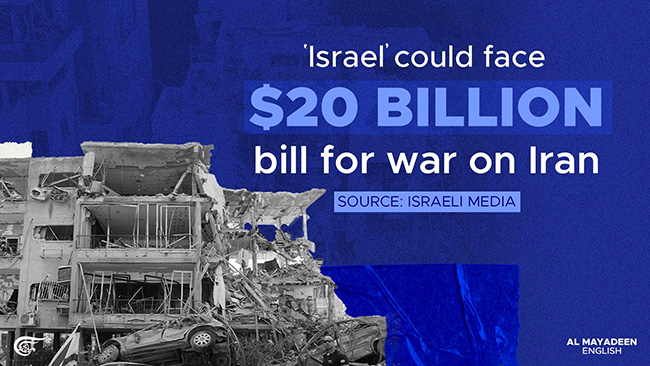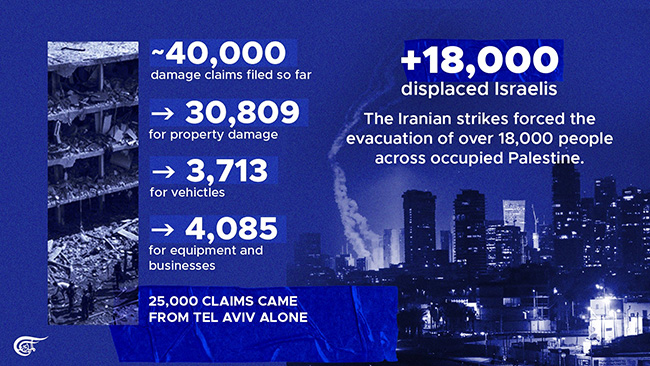Hooman Majd
Photo: ‘Haaretz’
What fuels Iranian hostility toward Israel? How does Khamenei continue to maintain control, even over his opponents? And why would assassinating him be a terrible mistake? A ‘Haaretz’ conversation with Iranian-born author and commentator Hooman Majd.
With articles and opinion pieces published in The Washington Post, Financial Times, The New Yorker, The New York Times and The Guardian, as well as appearances on NBC, Majd has become one of the most prominent Iranian voices in the United States over the past 20 years. He maintains close ties with his many relatives in Iran and with key figures in the country, including some in the regime. In the past, he even served as an interpreter for Iranian officials, including former Presidents Mohammad Khatami and Mahmoud Ahmadinejad, during their visits to the United States and to the United Nations.
Majd was born in Tehran in 1957, the son of an Iranian diplomat. He grew up in places ranging from London to San Francisco to India to Tunisia. "I attended American schools but always had a connection to Iran," he says. "We'd spend summer vacation at the house of my grandfather, who was an ayatollah."
What is the mood in Iran now that the 12 days of warfare have ended? Iranian-born author and journalist Hooman Majd has a clear answer: The Iranians are angry.
"My own family doesn't have water right now in their house," he says in a Zoom conversation from his home in the United States. "[Israel has struck] gas stations, oil depots… If Israel had restricted its attack purely to the nuclear sites, if it hadn't killed innocent people, hadn't targeted apartment buildings… if it only had done that and then withdrew, I don't think there would have been the same anger toward Israel.
He continues: "There are people who don't believe that Iran should have had the nuclear program. It was causing more problems for Iranians than benefits… But when you say, 'I'm going to get rid of your ballistic missiles… I want you to be so weak that I can bomb you anytime I want,' Well, that's not going to be acceptable to the Iranians."
The anger aimed at Israel, which has now boiled over, had been simmering even before the war broke out on June 13. According to Majd, until October 7, most Iranians weren't automatically anti-Israel, even if they supported the Palestinians. But anti-Israel sentiments escalated in the face of the destruction Israel caused in the Gaza Strip. Then came the strikes in Iran.

What about how Iranians feel about their own regime? In Israel, people are fantasizing about regime change in Tehran.
"Among the people in Tehran that I speak to, no one's talking about regime change. When you're being bombed, nationalism takes over. People are not necessarily rallying around [Supreme Leader Ali] Khamenei or even the regime – they're rallying around Iran. I see social media posts by Iranians who are anti-regime, but say, 'We will fight any invader, we will fight for our country.' And that's perfectly understandable. You may hate [Prime Minister Benjamin] Netanyahu in Israel, you might hope that somebody can get rid of him. But when Israel's attacked, it's your homeland."
Moreover, Majd notes, "most people in Iran don't believe there's an alternative waiting in the wings. Take Reza Pahlavi, the shah's son, who has spent 46 years in America. He doesn't have a government-in-exile; he doesn't have an army. He has nothing, just the nostalgia for the era of the shah. In order for him to become head of the new regime, the United States and/or Israel would have to put him there … It's going to be like Iraq or Afghanistan, and Iranians really don't want that," he says, even though Iranians "want a better economy. You want jobs, you want to be able to communicate with the rest of the world, you want to be able to travel, you want good relations with the West.
"You have to remember this is Iran, it's not North Korea," he adds. "Everybody has a satellite dish. They all watch CNN, they watch everything. Everyone has a VPN for internet sites that are blocked. They read newspapers, they read The New York Times, they read Haaretz, they know what's going on."
He notes that "when the nuclear deal [i.e., the Joint Comprehensive Plan of Action] was signed in 2015, when Javad Zarif, the foreign minister, returned to Iran, hundreds of young people were at the airport, celebrating. True, he's a regime guy, but people thought, 'Thank God somebody clinched a nuclear deal, now things will be better. The Americans will come, we'll get Boeing jets, there will be investments.' But this is not on the horizon right now."
In the long run, Majd continues, Khamenei's "legacy is largely going to be defined by the last two years. He presided over the country at a time when Iran was brutally attacked by Israel, destroying some of its military and [other] infrastructure, and then by the United States. Iran hasn't been attacked like this since the Iran-Iraq war."
In hindsight, he adds, "I don't believe Iran knew about October 7, because if Iran knew about it, then Israel knew about it, because Israel has so many spies inside Iran. Iran may have known there was some kind of plan to do something, in general" – but there's no way it could have known the details of the Hamas attack.
An yet, Majd warns, "killing Khamenei would be a very big mistake on Israel's part. It would make him a martyr in the eyes of religious Muslims, not just in Iran" – which could spark massive bloodshed.
Any final words for the Israeli people?
"[The war may have been] successful from a military standpoint for Netanyahu and even for Israel on the whole, as a way to demonstrate to the world how incredibly mighty it can be when it wants to exercise power. But strategically, I think it was a mistake.
Even after Khamenei goes, in the aftermath of the war – even if there's someone who isn't looking to attack Israel or looking to challenge Israel – you're not going to see a lot of pro-Israeli sentiment."

read more in our Telegram-channel https://t.me/The_International_Affairs

 9:25 01.07.2025 •
9:25 01.07.2025 •























